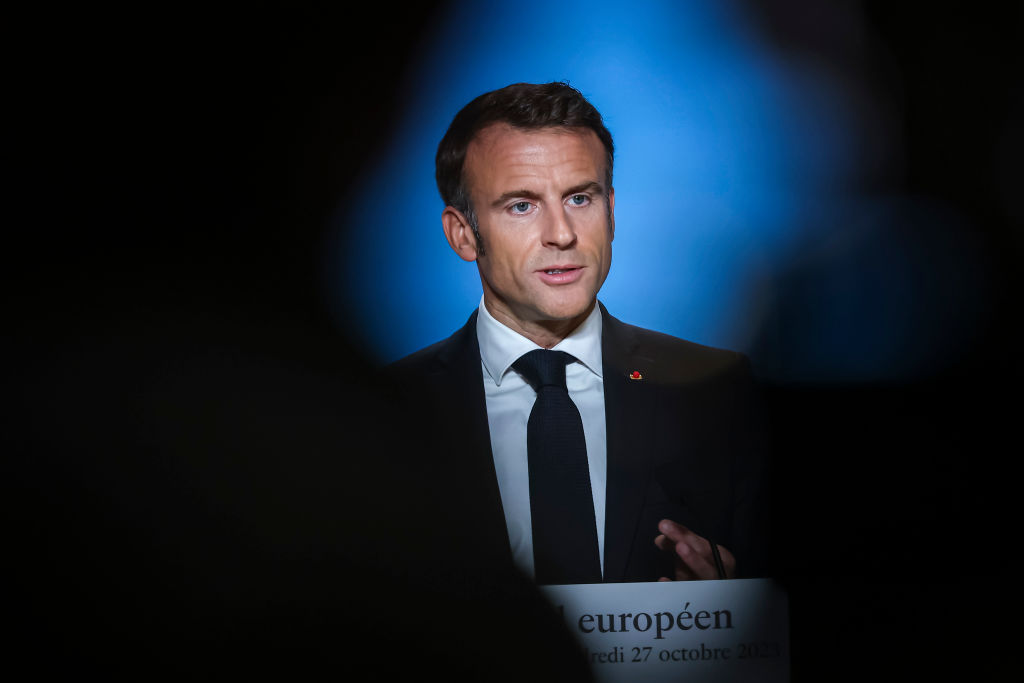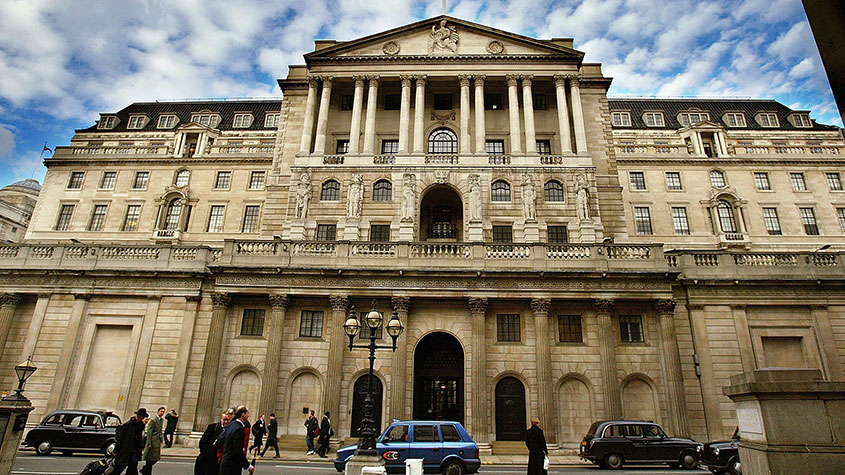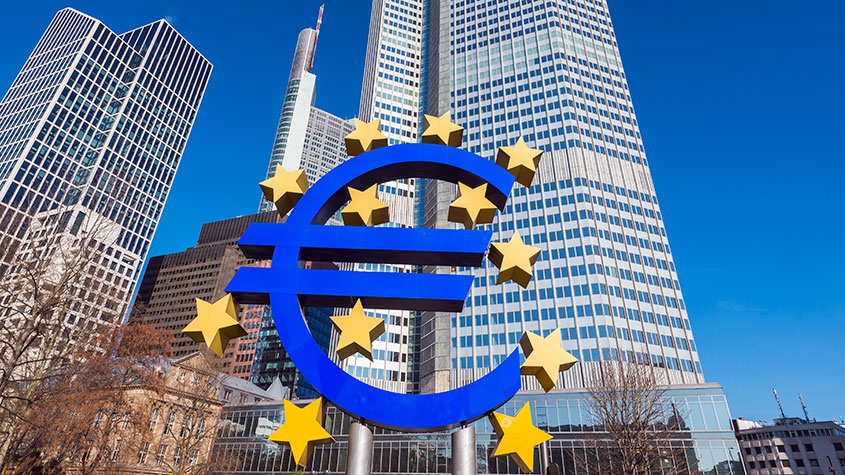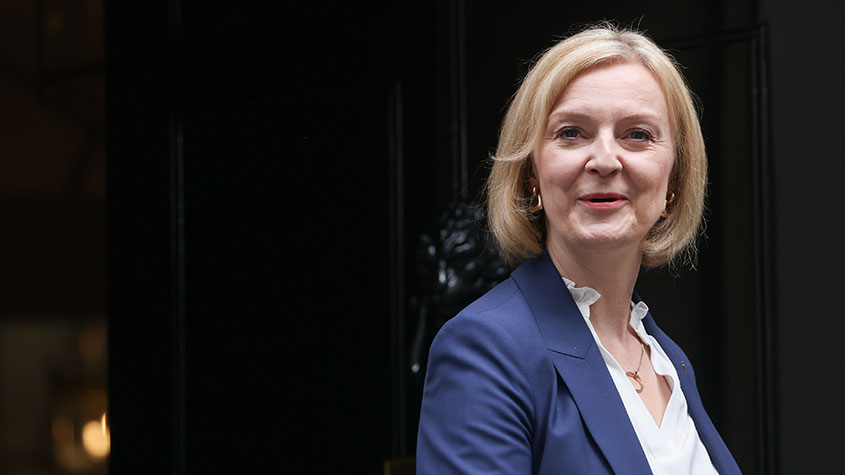Italy’s debt crisis could be far messier than the Greek drama ever was
Italy’s debt is very high indeed. With the chances of repaying it slim, the eurozone is heading for yet another messy crisis. John Stepek explains what’s going on.

Get the latest financial news, insights and expert analysis from our award-winning MoneyWeek team, to help you understand what really matters when it comes to your finances.
You are now subscribed
Your newsletter sign-up was successful
Want to add more newsletters?

Twice daily
MoneyWeek
Get the latest financial news, insights and expert analysis from our award-winning MoneyWeek team, to help you understand what really matters when it comes to your finances.

Four times a week
Look After My Bills
Sign up to our free money-saving newsletter, filled with the latest news and expert advice to help you find the best tips and deals for managing your bills. Start saving today!
Everyone keeps going on about how this is the longest bull market in history.
I see little value to these metrics (given the length of bull markets and the relative shortness of stock market history, there simply aren't enough examples to generate any worthwhile "rules"), so I don't want to go into long and tedious detail analysing this claim there are loads of pieces out there explaining the various controversies around the figures (and for what it's worth, I still consider the post-1987 bull market to be the longest).
But I do want to point out that our general sense that the market has gone up in a non-stop manner since 2009 is not quite true.
MoneyWeek
Subscribe to MoneyWeek today and get your first six magazine issues absolutely FREE

Sign up to Money Morning
Don't miss the latest investment and personal finances news, market analysis, plus money-saving tips with our free twice-daily newsletter
Don't miss the latest investment and personal finances news, market analysis, plus money-saving tips with our free twice-daily newsletter
In 2011, most global markets entered a bear market (commonly defined as a loss of 20% from the most recent high). Even the S&P 500 briefly had a period of being down 20% although it rebounded before the trading session ended (which is why no one counts it as being "official").
What was at the heart of this period of strife within our otherwise glorious era of money-printing? It was primarily the crisis in the eurozone, and the fear that it would spread from Greece to Spain, Italy and even France.
Which is why, even although eurozone sovereign debt crises are painfully dull in many ways, I think it's important for us to return to the vexing question of Italy.
Italy has lots of debt and no hope of growing quickly enough to repay it
Italy's public debt stands at more than 130% of GDP. Just to be clear, that's very high indeed only Greece is carrying more debt within the eurozone. The EU rules (which are of course, mostly ignored) argue that a country should keep its debt-to-GDP ratio below 60%. So it's more than twice the official limit. It's high.
Yet Italy's debt is even worse than the official figures make out. In effect, the Italian central bank owes the European Central Bank €400bn. This is what's known as the "Target 2" imbalance. I'm not going to go into this in detail today, because it's really quite technical and a bit of a headache to unpick.
Long story short, it shows that money within the eurozone is fleeing from Italy to go to safer places. In all, it's a form of debt that only matters if Italy leaves the euro, because that's the only point at which it would have to pay this particular debt back.
But if it does become relevant, then it means Italy's debt-to-GDP ratio is in fact closer to 160%. Also, that particular chunk of debt would be denominated in euros. So as Carmen Reinhart put it in a paper earlier this year, it "cannot be inflated away it is either repaid or restructured."
So we're clear on this Italy is extraordinarily indebted.
As we've ascertained on countless occasions, you get rid of debt by outgrowing it (paying it back honestly); inflating it away (paying it back dishonestly); or defaulting on it (not paying it back in full or at all).
Which of these options does Italy have? Well, the government would argue that it has increased its planned deficit (to 2.4%) in order to grow its way out of the debt. But this seems highly unlikely. Italy's economy appears to have given up growing. In effect, since it joined the euro, the economy has not grown at all. The idea that it will start now seems far-fetched.
So that does rather leave us with inflation or default. Now, a country with its own central bank can always plump for the former. And right now, the eurozone as a whole, under the auspices of Mario Draghi, the world's most talented central banker, is opting for the former.
Draghi managed to end the last sovereign debt crisis the squabble over Greece by making a big public promise, and then convincing the Germans to let him back it up. He launched quantitative easing (QE) and before that, several other schemes that effectively meant that the European Central Bank (ECB) was throwing its bottomless balance sheet behind every troubled state in the eurozone.
With one condition, that is that they promise to behave themselves. Thus Portugal, Ireland, and to a great extent, Spain and Cyprus countries that took their medicine, by choice or by lack of alternative won the backing of the ECB. Greece took a while, but eventually it was sorted out when it turned out that the Greeks simply had no intention of abandoning the euro.
But Italy is a trickier customer. And with Draghi coming to the end of his term next year, there's every chance that this blows up into something much harder to finesse than the Greek crisis was.
Italy is not Greece it's much, much worse than that
The only decent comparator we have for Italy is with Greece, and at the moment the situation is playing out in a similar way. We've had the election of a non-mainstream (I'm trying to find alternatives to populist, because it's a pretty devalued term right now) government which is now seeing how far it can push its luck with Brussels and the bond markets.
Here's Italy's deputy prime minister, Matteo Salvini, reacting to the fact that Italy's plan to spend more each year than it collects in taxes has driven up its cost of borrowing. Quotes the FT: "Those who want to speculate on the Italian economy should know that they are wasting time If I wanted to think badly I would say that behind the spread of recent days is a move by speculators like Soros who are aiming for the failure of a country, to buy its remaining healthy businesses at a bargain price."
In other words, Italy's rising borrowing costs ("spread" in this context means the gap between German bond yields and Italian ones) are down to a conspiracy (led by George Soros, of course, who has been the traditional target of incompetent and/or dictatorial politicians for at least the past 30 years now), which is designed to impoverish Italy so that evil capitalists can swoop in and scoop up its wealth at knock-down prices.
This is gibberish, and I hope you already realise that. But if you say it loudly enough and with enough indignation to a group of people who are already predisposed to dislike markets, then it can sound convincing. It's also the basic thesis of various left-leaning pop economics books, so you can hardly blame Salvini for pushing the idea.
Just to be clear "speculators" make money because countries are run badly. If the country wasn't run badly, they wouldn't be making these bets. It's the same as short-sellers making money because companies are run badly. The only difference between the toddler-like foot-stamping of Tesla boss Elon Musk and the vague growling of Salvini is that one is trying to distract the attention of shareholders while the other is doing the same for a group of voters.
OK, having clarified that, what does all of this mean?
Bond yields on Italian debt rose again yesterday, with ten-year borrowing costs rising above 3.6%. At some point, the ECB is going to have to make a choice intervene to stop yields rising, or see markets really start to panic.
And the problem is, the ECB does not really have a choice. Or at least, Salvini is betting that it doesn't have a choice.
If Italy loses the confidence of the markets, then the euro will too. That in turn is a recipe for the dollar spiking even higher (as investors flee for "safe" havens). And that in turn means that markets around the world will be hit hard.
I don't know exactly when this will happen, but I can't see the complacency lasting for much longer. Markets have grown used to Europe managing to "fudge" these problems, but with the ECB keen to get rid of QE, a lot more hinges on the politicians being able to reach amicable agreements.
We may well get to that stage, but right now we're in the early part of the negotiations, and as we all know from Brexit and from Greece, this is the point at which all the participants draw their red lines and pretend that they shall not cross them. It usually takes some sort of shock to get everyone moving. And that shock will, as usual, have to come from markets.
So don't be surprised to see Italy suddenly shooting into the headlines and sparking a sell-off in the imminent-to-near future.
(By the way, I'd just like to put a good word in for Soros here. If you're an investor, you should pay attention to his work. His theory of "reflexivity" is a far more convincing and useful model of markets than the efficient market hypothesis, for example. No single "guru" has all the answers no, not even Buffett and Munger but he has some interesting ideas, and his work is well worth reading for any serious investor.)
Get the latest financial news, insights and expert analysis from our award-winning MoneyWeek team, to help you understand what really matters when it comes to your finances.

-
 Should you buy an active ETF?
Should you buy an active ETF?ETFs are often mischaracterised as passive products, but they can be a convenient way to add active management to your portfolio
-
 Power up your pension before 5 April – easy ways to save before the tax year end
Power up your pension before 5 April – easy ways to save before the tax year endWith the end of the tax year looming, pension savers currently have a window to review and maximise what’s going into their retirement funds – we look at how
-
 How have central banks evolved in the last century – and are they still fit for purpose?
How have central banks evolved in the last century – and are they still fit for purpose?The rise to power and dominance of the central banks has been a key theme in MoneyWeek in its 25 years. Has their rule been benign?
-
 Do we need central banks, or is it time to privatise money?
Do we need central banks, or is it time to privatise money?Analysis Free banking is one alternative to central banks, but would switching to a radical new system be worth the risk?
-
 The French economy's Macron bubble is bursting
The French economy's Macron bubble is burstingCheap debt and a luxury boom have flattered the French economy. That streak of luck is running out.
-
 The Bank of England can’t afford to hike interest rates again
The Bank of England can’t afford to hike interest rates againWith inflation falling, the cost of borrowing rising and the economy heading into an election year, the Bank of England can’t afford to increase interest rates again.
-
 Bank of England raises interest rate by 0.5%
Bank of England raises interest rate by 0.5%News The Bank of England has raised interest rates once again, this time by 0.5%. This takes the bank’s base rate to 3.5%, the highest it’s been since 2008.
-
 Eurozone inflation hits 10.7% in October
Eurozone inflation hits 10.7% in OctoberNews Inflation across the eurozone hit 10.7% in October. What does it mean for your money?
-
 A forgotten lesson on the dangers of energy price caps
A forgotten lesson on the dangers of energy price capsAnalysis Liz Truss’s proposed energy price cap is an ambitious gamble. But a similar programme in Spain ended up being a fiasco, say Max King and Tom Murley. Here, they explain why Truss’s plan could be doomed to failure.
-
 Central banks can’t solve our current economic problems
Central banks can’t solve our current economic problemsAnalysis Traditionally, as we hit recessionary times, central banks have lowered interest rates. But that’s not an option this time. If anyone can help dull the economic pain, it’s not the Bank of England, it’s the government. John Stepek explains why.